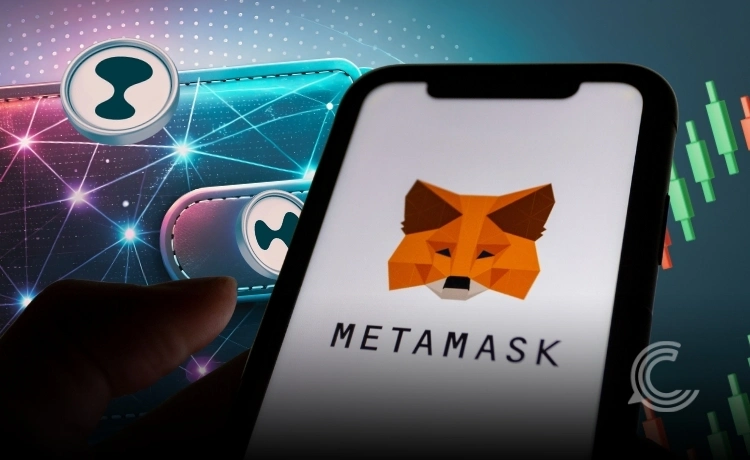MetaMask to Introduce In-Wallet Perpetuals Trading Feature

Key Highlights
- MetaMask is planning to integrate a “perpetual futures” trading feature on its wallet interface
- The trading functionality will be powered by Hyperliquid
- The cryptocurrency wallet is preparing to launch its own cryptocurrency, MASK
MetaMask, one of the leading cryptocurrency wallets, is preparing to integrate a new feature into its wallet that will allow users to trade “perpetual futures” without leaving the MetaMask application.
[ ZOOMER ]
METAMASK TO LAUNCH PERPETUALS TRADING IN-WALLET USING HYPERLIQUID: GITHUB
— zoomer (@zoomerfied) September 19, 2025
The trading functionality will be powered by Hyperliquid, a specialized trading platform known for its fast transaction speeds and advanced features.
These financial instruments allow traders to speculate on cryptocurrency price movements with borrowed funds, potentially amplifying both gains and losses.
While demand for cryptocurrency trading is growing rapidly, this integration of perpetual trading on MetaMask shows a huge transformation of digital wallets from simple storage tools to comprehensive financial platforms.
For everyday users, this integration means they won’t need to visit separate trading websites or applications to access these advanced trading options. Instead, they will find a new “Trade” of “Perps” section within their familiar MetaMask wallet interface. The system will support trading of numerous digital assets, including Bitcoin, Ethereum, and many other popular cryptocurrencies.
The integration is designed to be user-friendly, allowing people to deposit funds, place trades, and monitor their positions all within the same application they use to store their cryptocurrencies.
Users will primarily need USDC, a stablecoin pegged to the U.S. dollar, to use as collateral for their trades. The system will include risk management tools like stop-loss orders to help users limit possible losses.
MetaMask Prepares to Launch Its Native Cryptocurrency: CEO
MetaMask is reportedly planning to introduce its own digital currency called MASK. The new cryptocurrency will serve multiple purposes within the MetaMask ecosystem. It will allow users to participate in governance decisions, potentially voting on future updates and features.
The token will also likely be used to reward active users and support a new stablecoin called MetaMask USD (mUSD) that will make trading within the wallet smoother and more efficient.
The development follows MetaMask’s recent expansion beyond its original Ethereum foundation. The wallet now supports multiple blockchains, including Bitcoin and Solana, and has integrated advanced trading features like perpetual trading. The introduction of a native token represents the next logical step in the platform’s growth strategy.
For everyday users, the MASK token could make the MetaMask experience more engaging and rewarding. The token might be distributed through various incentive programs that encourage platform usage and participation.
This approach has proven successful for other cryptocurrency projects that have used native tokens to build vibrant communities and ecosystems.
The planned token launch reflects a broader trend in the cryptocurrency industry where successful platforms introduce their own digital currencies to enhance functionality and user engagement.
By creating a native token, MetaMask aims to strengthen its position as a leading Web3 application while providing additional value to its extensive user base.
Throughout 2025, MetaMask has introduced several major updates that expand its capabilities far beyond basic cryptocurrency storage. The wallet now supports multiple blockchains, including Bitcoin and Solana. These new upgrades allow users to manage different cryptocurrencies within a single interface without needing special converted tokens.
These developments are part of its broader trend of cryptocurrency wallets expanding their services to include features traditionally found on dedicated exchanges. Many wallets now offer built-in swapping services, staking options, NFT marketplaces, and even cryptocurrency-backed debit cards for real-world spending.
By integrating these services directly into wallet applications, companies are reducing the need for users to transfer assets between different platforms, potentially enhancing security and convenience.
The expansion of wallet capabilities coincides with improved security measures across the industry. Wallet providers have implemented enhanced protection system,s including better phishing detection and supply chain attack prevention.
These security improvements are particularly important as wallets handle more complex financial transactions and hold greater amounts of user assets.



